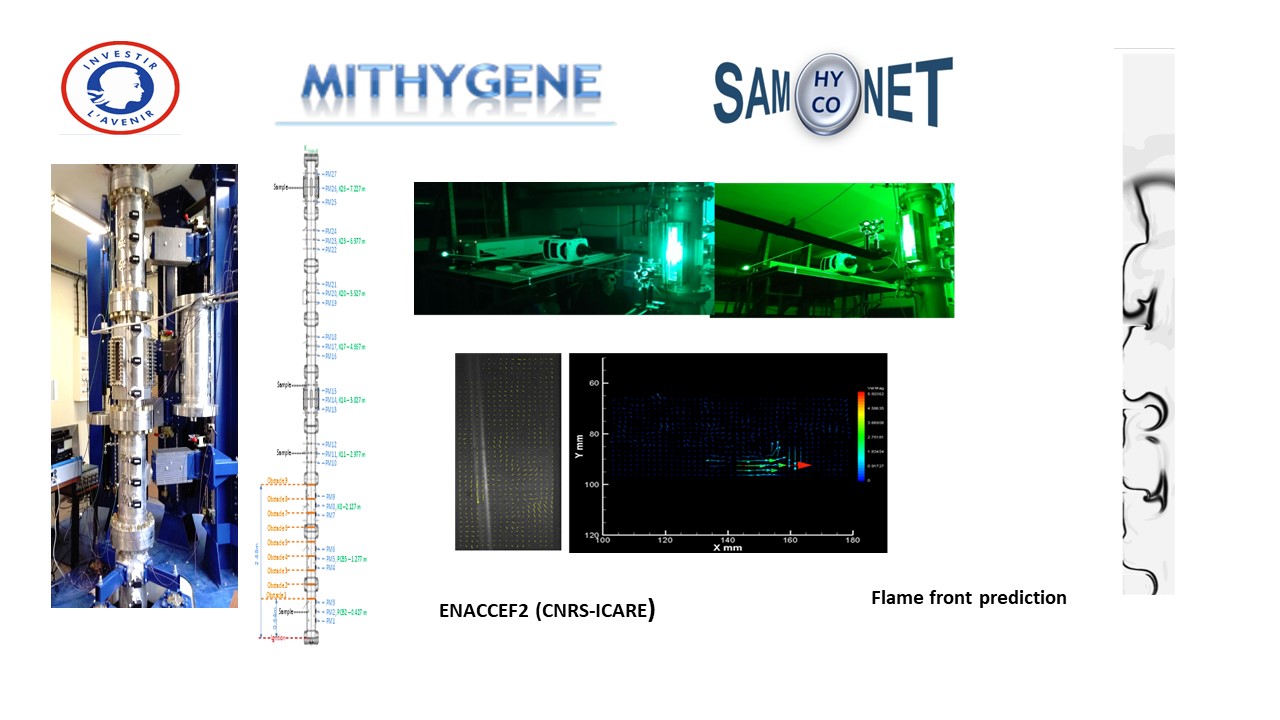Ongoing Hydrogen projects under the ETSON auspices
The Fukushima events have highlighted the need for improved safety approaches and numerical tools to assess hydrogen risk. In this regard and under the auspices of ETSON, two main projects are underway. The first is to organize benchmarks for hydrogen combustion codes and the second is to develop Technical Safety Assessment Guidelines (TSAG) for hydrogen risk assessment expected to be completed by the end of 2022.
Regarding code benchmarking, two benchmarks were organized respectively in 2017-2018 and in 2020 - 2021 in the framework of the MITHYGENE and SAMHYCO-NET projects coordinated by IRSN.
The two benchmarks were organized on the basis of experimental tests carried out on the ENACCEF2 installation newly built within the framework of the MITHYGENE project.
The two benchmarks were complementary and aimed at verifying the real capacity of the hydrogen combustion models/codes to handle conditions representative of severe accidents. To this end, the first benchmark, ETSON-MITHYGENE, studied the effect of initial hydrogen concentration on flame propagation in dry air at ambient temperature and pressure. The second benchmark, ETSON-SAMHYCON-NET, studied the effect of initial temperature, initial temperature and initial water vapor concentration on flame propagation, including acceleration and deceleration phases.
The results of the two benchmarks, presented at the Nuthos-12 and Nureth-19 conferences, indicated that the codes used were capable of qualitatively predicting the pressure evolution inside the vessel. Furthermore, these results showed that there are still limitations and weaknesses in the combustion models used in the different codes. These limitations concern the chemistry part, the turbulent combustion model and the coupling between the two models. An improvement of the combustion models is necessary in order to obtain consistent results between the flame regime and the predicted pressure rise for a given configuration. Therefore, further research is still needed.
Ahmed Bentaib
IRSN
ahmed.bentaib@irsn.fr
